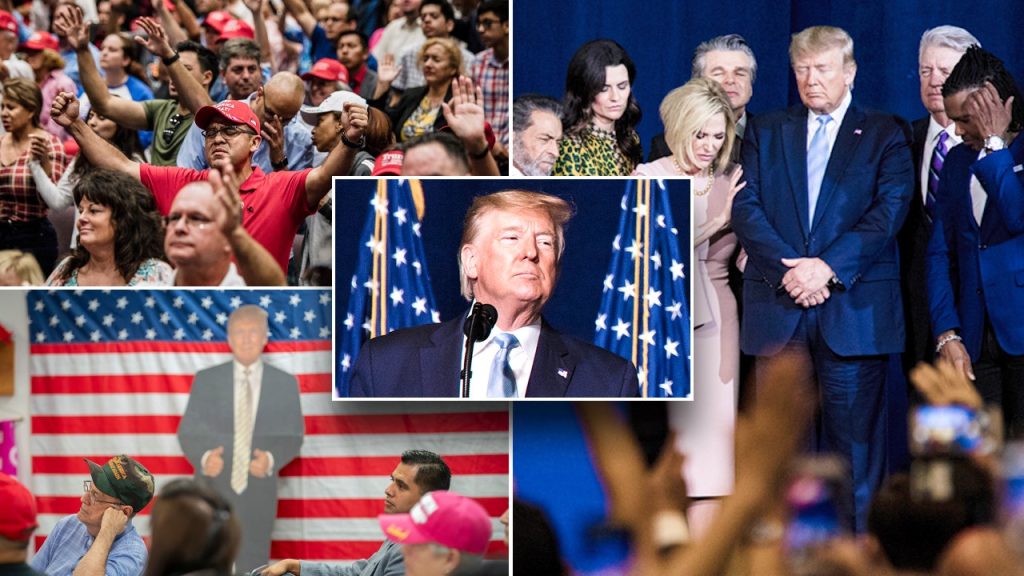The article explores the strong support that evangelical voters have shown for Donald Trump, positing that he is attempting to create a following akin to the “Church of Trump.” The New York Times highlights Trump’s use of religious language and imagery to appeal to his supporters and draw them in. Despite some historical context showing that candidates have long merged religion and politics, Trump’s approach seems to be particularly notable in its intensity and the fervor of his followers. Additionally, the article mentions other politicians, like President Biden, who also incorporate religious themes in their messaging, pointing out how Trump’s approach differs from more traditional presidential behaviors.
The piece delves into a comparison between Trump’s tactics and those of religious figures, with references to biblical stories like the crucifixion of Jesus. While the article acknowledges that Trump has not explicitly spoken in messianic terms, it examines how some of his supporters view him as a chosen vessel of God. However, it is also noted that Trump’s personal history, including multiple marriages and accusations against him, would seemingly contradict the idea of him as a religious figure. Despite these contradictions, some of his followers have fervently embraced him as an unlikely evangelical hero, drawing parallels to religious narratives.
Andrew Sullivan, in his analysis, criticizes both ends of the political spectrum for their refusal to distance themselves from extreme ideologies. He discusses a trend of aligning politicians with religious identities, turning voting into an act of faith rather than just a democratic process. Sullivan also addresses the challenges of communicating the appeal of Trump to his supporters, particularly among those who feel marginalized or who perceive sinister forces at play. He reflects on the deeply ingrained religious beliefs, such as the notion that everyone is a sinner, which may influence evangelical supporters’ viewpoints on Trump’s flaws.
Overall, the article raises questions about the fusion of religion and politics in the context of Trump’s appeal to evangelical voters. It considers the implications of viewing politicians through a religious framework and how this affects the way individuals engage in the democratic process. The intense loyalty and fervor shown by evangelical supporters towards Trump, despite his controversial past and behaviors, are examined as part of a broader trend of increasingly polarized political ideologies and identities. The author also critiques the media’s portrayal of Trump and the challenge it faces in understanding and conveying his appeal to his base. Ultimately, the article paints a complex picture of the intertwining of faith, politics, and personal beliefs, and how this impacts the current political landscape.















